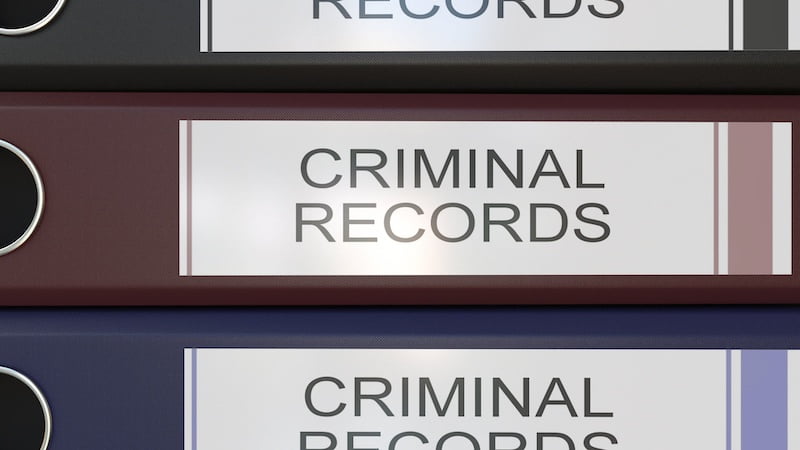Driving under the influence of drugs or alcohol (DUI) is a serious crime that can impact your life in many unexpected ways.
This is especially true if you are waiting for approval on your green card.
In this article, we’ll go over the effects that a DUI can have on your green card application.
However, please note that only an attorney who has reviewed your entire case can give you proper advice on how a DUI could affect your specific situation.
How Can a DUI Affect my Green Card Application?

In short, the answer depends on several factors, and can change from case-to-case and jurisdiction-to-jurisdiction.
Generally speaking, a first offense of DUI (absent additional charges such as manslaughter or hit-and-run) will not significantly impact your green card application, result in removal proceedings ("deportation"), or significantly impact the lawful presence of a green card holder.
However, if an undocumented person is convicted of DUI, and receives active jail time, there is a much higher likelihood that ICE will place them in removal proceedings.
Similarly, green card holders who are near their 10-year renewal period (or 2-year if their green card is conditional), should at least speak with an immigration attorney about the DUI charge.
This is because you'll usually have to provide an updated list of any criminal charges and convictions on your renewal application.
In this situation, the DUI conviction may affect the "good moral character" requirement, as described in our extended answer below.
Finally, a second or third DUI offense could have the effect of placing someone in removal proceedings.
This fact can be true even for some green card holders, depending on the sentence your receive and the presence of any additional criminal convictions on your record.
The Extended Answer

When you send your green card application to USCIS, they will review your criminal history. In doing so, USCIS will look for two things:
- First, does your criminal conviction render you statutorily inadmissible into the United States?
- Second, does such a conviction show a significant lack of good moral character?
Essentially, certain crimes or circumstances can disqualify you from obtaining a green card.
Further, USCIS officials have a great degree of discretion in deciding the outcome of an adjustment of status case.
For these reasons, the effect that a DUI conviction will have on your case can vary from official to official and situation to situation.
In general, there are three main ways that a DUI may affect your immigration process:
- A DUI involving reckless endangerment, hit-and-run, or another additional serious crime could render you inadmissible to the United States as "aggravated felonies."
- Having too many crimes on your record (such as multiple DUIs and related crimes) could render you inadmissible due to being sentenced to five or more total years in prison.
- A DUI could render you ineligible for permanent residency (you can't get a green card).
Note that you must list any and all convictions on your green card application before submitting it to USCIS.
Failing to do so could result in a USCIS official outright denying your application, and may even lead to accusations of immigration fraud.
DUIs and Inadmissibility
Under federal immigration law, certain "crimes of moral turpitude" can bar you from entering the United States, thus rendering you statutorily inadmissible.
In addition, individuals who are inadmissible to the United States are also automatically ineligible for a green card.
Fortunately, DUI offenses are usually not considered to be crimes of moral turpitude.
However, some immigration courts have ruled that certain aggravated DUI offenses do in fact count as grounds for inadmissibility.
This generally occurs in felony DUI cases that result in permanent injury or death.
In addition, the official may find you inadmissible if you have several previous DUI convictions on your record.
Generally, this happens to individuals who were sentenced a total jail or prison sentence of five years or more.
DUI and Good Moral Character
USCIS will only approve green card applications for individuals who display "good moral character."
Basically, certain actions and qualities are often seen as representing "bad" moral character, and can disqualify you from a green card.
For example, the Immigration and Nationality Act notes that "no person shall be regarded as a person of good moral character" who is, or was:
- A habitual drunkard
- A person who has given false testimony for immigration benefits
- The perpetrator or any of the statutorily noted aggravated felonies
- Confined in a penal institution for 180 days or more
- Previously convicted of crimes with a total jail sentence of five years or more
While there are several other disqualifying factors in regards to good moral character, these are the most relevant here.
In most cases, you need to show good moral character over a period of five years.
However, if you can show good moral character going back further than that, it can strengthen your application.
Will ICE Deport Me for DUI?

In most cases, no. Most DUI cases do not fulfill any of the specific grounds for removability. Thus, you will most likely not end up in removal proceedings for a first-time DUI conviction.
However, this may change in cases of extreme recklessness, or if your DUI caused a death or severe injury.
Similarly, having several DUI or other misdemeanor offenses on your record can increase your risk of being placed in removal proceedings.
Permanent Residents, DUIs, and Citizenship
U.S. permanent residents cannot be placed in removal proceedings without being convicted of a deportable offense.
Thus, if you are a permanent resident, a DUI conviction should not have any effect on your immigration status.
Once again, the only exception is for aggravated felony DUI cases, which are very rare.
On the other hand, a DUI can count against you if you choose to apply for U.S. citizenship down the line. In this situation, you will have to prove that you are a person of good moral character despite your DUI conviction.
To do so, make sure you emphasize how you have changed your life since your conviction.
In addition, you might want to wait until a few years after your offense before applying.
Remember, "good moral character" is primarily a judgement of how you've lived for the past five years.
For this reason, permanent residents should generally wait at least five years after a DUI conviction to apply for citizenship.
Conclusion

In most cases, a DUI conviction will not disqualify you from receiving a green card.
However, it will always cause problems that you'll have to address during your application process.
If you're still worried about how a DUI conviction could affect your immigration status, you should contact an immigration lawyer.
A good immigration lawyer can help you understand and prepare your green card application.
While it’s hard to predict how an individual application will go, working with an experienced attorney will give you the best possible chance of success in your case.